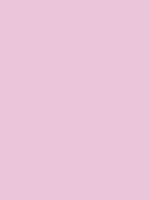#eac6da Color Information
In a RGB color space, hex #eac6da is composed of 91.8% red, 77.6% green and 85.5% blue. Whereas in a CMYK color space, it is composed of 0% cyan, 15.4% magenta, 6.8% yellow and 8.2% black. It has a hue angle of 326.7 degrees, a saturation of 46.2% and a lightness of 84.7%. #eac6da color hex could be obtained by blending #ffffff with #d58db5. Closest websafe color is: #ffcccc.
-
- R 92
- G 78
- B 85
-
- C 0
- M 15
- Y 7
- K 8
● #eac6da color description : Light grayish pink.
#eac6da Color Conversion
The hexadecimal color #eac6da has RGB values of R:234, G:198, B:218 and CMYK values of C:0, M:0.15, Y:0.07, K:0.08. Its decimal value is 15386330.
| Hex triplet | eac6da | #eac6da |
|---|---|---|
| RGB Decimal | 234, 198, 218 | rgb(234,198,218) |
| RGB Percent | 91.8, 77.6, 85.5 | rgb(91.8%,77.6%,85.5%) |
| CMYK | 0, 15, 7, 8 | |
| HSL | 326.7°, 46.2, 84.7 | hsl(326.7,46.2%,84.7%) |
| HSV (or HSB) | 326.7°, 15.4, 91.8 | |
| Web Safe | ffcccc | #ffcccc |
| CIE-LAB | 83.413, 15.995, -5.195 |
|---|---|
| XYZ | 66.779, 62.944, 74.957 |
| xyY | 0.326, 0.308, 62.944 |
| CIE-LCH | 83.413, 16.818, 342.007 |
| CIE-LUV | 83.413, 19.851, -10.775 |
| Hunter-Lab | 79.337, 11.405, -0.481 |
| Binary | 11101010, 11000110, 11011010 |
Color Schemes with #eac6da
Alternatives to #eac6da
Below, you can see some colors close to #eac6da. Having a set of related colors can be useful if you need an inspirational alternative to your original color choice.
#eac6da Preview
This text has a font color of #eac6da.
<span style="color:#eac6da;">Text here</span>This paragraph has a background color of #eac6da.
<p style="background-color:#eac6da;">Content here</p>This element has a border color of #eac6da.
<div style="border:1px solid #eac6da;">Content here</div>.text {color:#eac6da;}.background {background-color:#eac6da;}.border {border:1px solid #eac6da;}Shades and Tints of #eac6da
A shade is achieved by adding black to any pure hue, while a tint is created by mixing white to any pure color. In this example, #000000 is the darkest color, while #faf1f6 is the lightest one.
-
#000000
#000000rgb(0,0,0) -
#0f050b
#0f050brgb(15,5,11) -
#1d0b15
#1d0b15rgb(29,11,21) -
#2b101f
#2b101frgb(43,16,31) -
#3a1529
#3a1529rgb(58,21,41) -
#481b34
#481b34rgb(72,27,52) -
#56203e
#56203ergb(86,32,62) -
#652548
#652548rgb(101,37,72) -
#732a53
#732a53rgb(115,42,83) -
#81305d
#81305drgb(129,48,93) -
#903567
#903567rgb(144,53,103) -
#9e3a72
#9e3a72rgb(158,58,114) -
#ac3f7c
#ac3f7crgb(172,63,124)
-
#ba4586
#ba4586rgb(186,69,134) -
#c05390
#c05390rgb(192,83,144) -
#c56299
#c56299rgb(197,98,153) -
#ca70a2
#ca70a2rgb(202,112,162) -
#d07eab
#d07eabrgb(208,126,171) -
#d58db5
#d58db5rgb(213,141,181) -
#da9bbe
#da9bbergb(218,155,190) -
#dfa9c7
#dfa9c7rgb(223,169,199) -
#e5b8d1
#e5b8d1rgb(229,184,209) -
#eac6da
#eac6dargb(234,198,218) -
#efd4e3
#efd4e3rgb(239,212,227) -
#f5e3ed
#f5e3edrgb(245,227,237) -
#faf1f6
#faf1f6rgb(250,241,246)
Tones of #eac6da
A tone is produced by adding gray to any pure hue. In this case, #dbd5d8 is the less saturated color, while #ffb1dc is the most saturated one.
-
#dbd5d8
#dbd5d8rgb(219,213,216) -
#ded2d9
#ded2d9rgb(222,210,217) -
#e1cfd9
#e1cfd9rgb(225,207,217) -
#e4ccd9
#e4ccd9rgb(228,204,217) -
#e7c9da
#e7c9dargb(231,201,218) -
#eac6da
#eac6dargb(234,198,218) -
#edc3da
#edc3dargb(237,195,218) -
#f0c0db
#f0c0dbrgb(240,192,219) -
#f3bddb
#f3bddbrgb(243,189,219) -
#f6badb
#f6badbrgb(246,186,219) -
#f9b7dc
#f9b7dcrgb(249,183,220) -
#fcb4dc
#fcb4dcrgb(252,180,220) -
#ffb1dc
#ffb1dcrgb(255,177,220)
Color Blindness Simulator
Below, you can see how #eac6da is perceived by people affected by a color vision deficiency. This can be useful if you need to ensure your color combinations are accessible to color-blind users.
